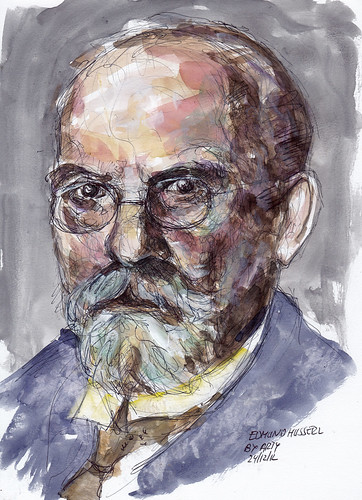Course syllabus
Description
 The Twentieth Century was a period of enormous philosophical creativity. In this course we examine two waves of new philosophical thought that originated in Germany in the early Twentieth Century and gradually spread throughout the world. The phenomenological movement, initiated by Edmund Husserl, brought fresh insight into age-old philosophical topics such as the nature of consciousness, time and reality. Then, after World War II, a renewed focus on the role of language and dialogue inspired a further revolution in philosophical thought, a style of thinking called hermeneutics. In this course we examine the work of key thinkers from these two intellectual movements. These include Edmund Husserl, Martin Heidegger, Maurice Merleau-Ponty, Simone de Beauvoir, Emmanuel Lévinas, Hannah Arendt, Hans-Georg Gadamer, Paul Ricoeur, and Jürgen Habermas.
The Twentieth Century was a period of enormous philosophical creativity. In this course we examine two waves of new philosophical thought that originated in Germany in the early Twentieth Century and gradually spread throughout the world. The phenomenological movement, initiated by Edmund Husserl, brought fresh insight into age-old philosophical topics such as the nature of consciousness, time and reality. Then, after World War II, a renewed focus on the role of language and dialogue inspired a further revolution in philosophical thought, a style of thinking called hermeneutics. In this course we examine the work of key thinkers from these two intellectual movements. These include Edmund Husserl, Martin Heidegger, Maurice Merleau-Ponty, Simone de Beauvoir, Emmanuel Lévinas, Hannah Arendt, Hans-Georg Gadamer, Paul Ricoeur, and Jürgen Habermas.
Participants in this course will develop an understanding of the core ideas of each of these thinkers and of the unique contribution each has made to intellectual life in the modern world.
Course objectives
- Provide a broad survey of the history of philosophy in the twentieth century, with a focus on the phenomenological and hermeneutic traditions
- Introduce students to some leading philosophers of the twentieth century who have been widely influential in the humanities and social sciences
- Develop students’ skills in reading, interpreting and critically assessing philosophical texts
- Enhance students’ capabilities in scholarly analysis, interpretation of evidence and presentation of reasoned arguments
Quick links
- Teaching staff
- Learning methods
- Assessment information
- Class representative
- Resources and recommended reading
- Course points, prerequisites and restrictions
Weekly Topics
Part I: Subjectivity
Week 2: Consciousness
Week 3: Being-in-the-world
Week 4: Temporality
Week 5: Embodiment
Week 6: Sexual difference
Part II: Intersubjectivity
Week 7: Alterity - Special lecture time: 9-11am Monday 17th Sept, Case Room 4 in Business School (260-009)
Week 8: Plurality
Part III: Language and Reason
Week 9: Language
Week 10: Narrative identity
Week 11: Communication
Week 12: Discourse ethics
Course summary:
| Date | Details | Due |
|---|---|---|